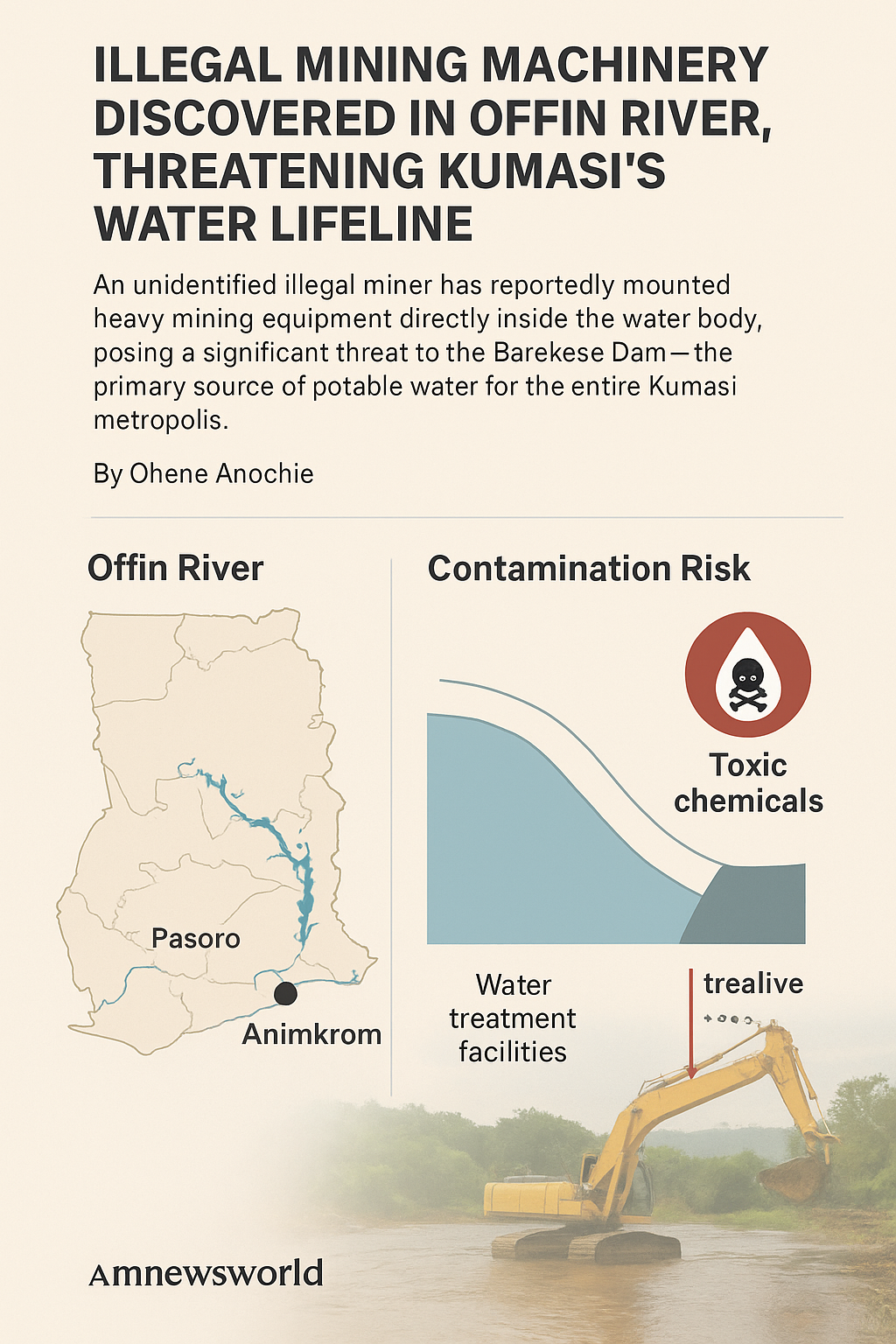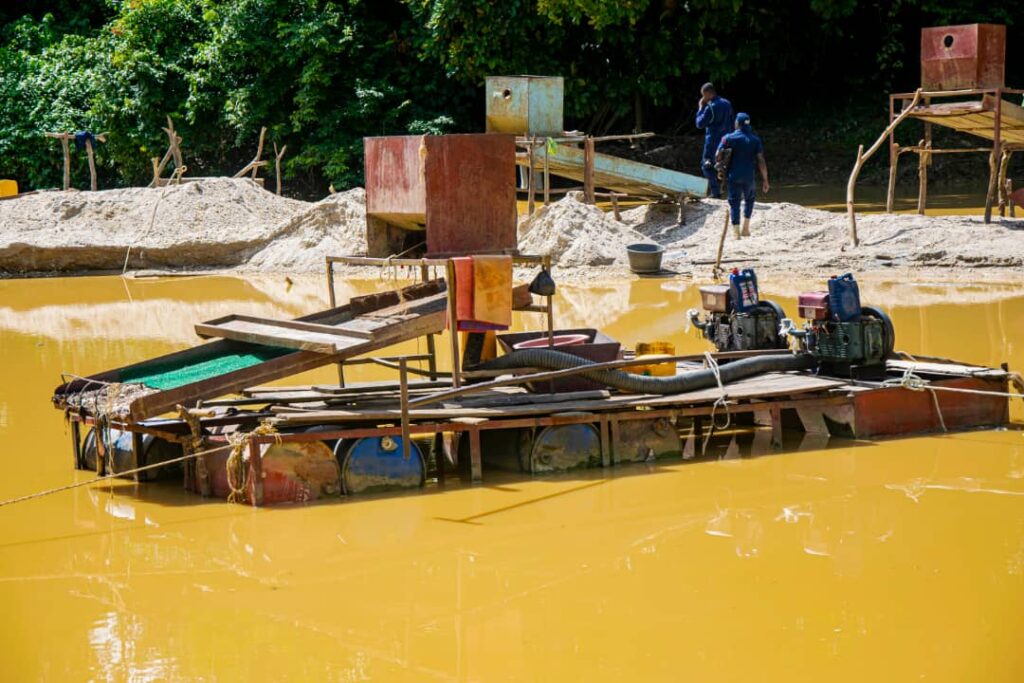A shadowy illegal mining operation has been uncovered by Amnewsworld’s reporter, Ohene Anochie in the Offin River at Pasoro, near Animkrom, in what could become one of the most severe environmental threats to Kumasi’s lifeline water supply in years.
During a week-long investigation, I observed heavy mining equipment discreetly stationed inside the river, its operators working under the cover of dawn and late-night hours. The machinery churns through the riverbed, releasing thick clouds of sediment downstream. Local residents quietly confirmed that the activity began several weeks ago, yet no visible action has been taken by authorities.
The Offin River is no ordinary waterway it feeds directly into the Barekese Dam, which supplies drinking water to nearly two million people in Kumasi and surrounding towns. If the pollution continues unchecked, experts warn that the city could face an unprecedented water crisis.
The Threat of Toxic Contamination
Environmental specialists consulted by Ohene Anochie cautioned that illegal mining in rivers typically involves the use of mercury and, in some cases, cyanide both deadly to aquatic life and hazardous to humans. Even in smaller concentrations, these chemicals can compromise water treatment systems, making purification costly, if not impossible.
“If mercury is being used here, then Kumasi’s water supply is already under silent attack,” an environmental chemist at the Kwame Nkrumah University of Science and Technology (KNUST), who requested anonymity, told me. “Once contamination sets in, it is extremely difficult to reverse.”

A Community on Edge
Residents of Pasoro and Animkrom expressed frustration over the situation, with some claiming that they had raised alarms but feared retaliation from the miners.
“This is not just about our river; it is about Kumasi’s survival,” one visibly distressed farmer said. “The dam is our future. Once it is poisoned, where do we go for water?”
Others admitted that some community members, out of desperation for income, were colluding with the illegal miners by offering land access or logistical support.
A National Crisis, A Local Flashpoint
Ghana’s fight against galamsey (illegal mining) has become one of the country’s most pressing national crises. Rivers such as the Pra, Ankobra, and Birim have already been declared biologically dead in sections due to years of unregulated mining. Now, the Offin River, once considered a relatively resilient water source, appears to be the next casualty.
Environmental activists are calling for urgent intervention from the Water Resources Commission, the Ghana Water Company Limited (GWCL), and security agencies. Already, videos and photographs documenting the machinery in the river are circulating among advocacy groups, putting authorities under growing pressure.
“The silence from government institutions is deafening,” said a youth activist from Kumasi. “We cannot sit back and watch until taps run dry and people fall sick.”
A Looming Disaster
The Barekese Dam is the single most important water facility in the Ashanti Region. Its contamination would not only force the Ghana Water Company into costly treatment processes but could also lead to rationing, leaving households, hospitals, and schools without safe drinking water.
The estimated cost of rehabilitating a contaminated dam far outweighs the illegal profits made by miners, yet enforcement appears weak. While the state has launched several anti-galamsey operations in recent years, critics argue that political interference and corruption have shielded powerful backers of illegal miners.
For now, the machines at Pasoro continue to dig, and the Offin River continues to carry the scars of exploitation downstream. Unless swift action is taken, Kumasi could soon face the unthinkable turning on the taps and finding nothing safe to drink.


